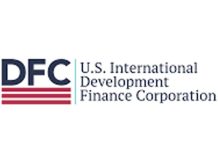A Federal High Court in Abuja has curtailed the powers of the Independent Corrupt Practices and Other Related Offences Commission (ICPC) to freeze suspicious bank accounts, limiting the timeframe to 72 hours.
Justice James Omotosho delivered the ruling in a case brought by the Lawyers Network Against Corruption (LNAC), challenging the ICPC’s authority to freeze accounts for up to one year under Section 45(1) of the ICPC Act. The court declared such an extended period unreasonable and a violation of citizens’ constitutional rights, adding that it undermines judicial oversight.
The suit, filed on February 21, 2024, by Abuja-based lawyer Ezenwa Anumnu on behalf of the LNAC, argued that the ICPC and its Chairman had been freezing bank accounts without court orders. It contended that this practice violated Section 36 of the 1999 Constitution, which guarantees fair hearing, and Section 44(1), which protects citizens’ rights to own property.
The LNAC sought declarations from the court invalidating Section 45(1) of the ICPC Act for inconsistency with the Constitution and called for an injunction preventing the ICPC from issuing such freezing directives without judicial approval.
Justice Omotosho, in his ruling, acknowledged that while the ICPC has the mandate to combat corruption, its powers must be balanced against citizens’ rights. He stated that freezing accounts without judicial oversight could lead to abuse, leaving account holders in uncertainty and potentially crippling their personal or commercial activities.
The judge cited Section 36 of the Constitution, which ensures the right to fair hearing, noting that decisions impacting individuals must allow them the opportunity to present their case. He stressed that laws denying such rights could be invalidated.
Although the ICPC Act grants the Commission powers to freeze accounts, Justice Omotosho held that these directives must be time-bound to prevent injustice. He criticised the argument by ICPC’s counsel, L.C. Iledunnu, that freezing accounts for up to a year was necessary for investigations, stating that such a period was excessive and could harm individuals or businesses.
The court highlighted the precedence set by the Money Laundering Act, which allows the Economic and Financial Crimes Commission (EFCC) to freeze accounts for a maximum of 72 hours, reinforcing the need for judicial approval beyond that period.
Justice Omotosho ruled that the ICPC could freeze accounts under investigation for 72 hours but must seek a court extension if investigations remain incomplete. He emphasised that this limitation was crucial to protect citizens’ rights while enabling the Commission to address corruption effectively.













